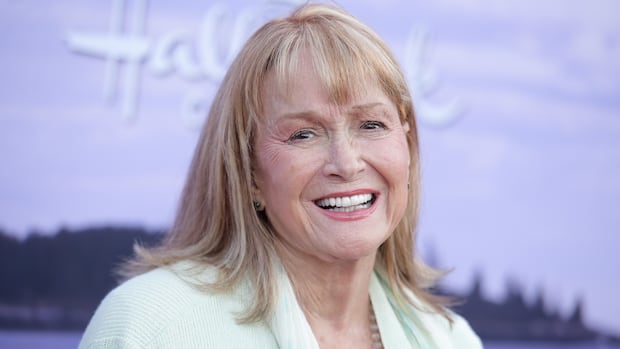The Naked Gun. 28 Days Later. I Know What You Did Last Summer. Jurassic Park. Thought these are all titles from 2025, you could be forgiven for thinking they came from Moviefone.
This year’s summer blockbuster season has been dominated by nostalgic fare: reboots, remakes and sequels. And while the retold story has been an element of the movie business going back to its earliest days, studios seem to be cashing in more than ever before — and audiences are buying in.
From Lilo & Stitch becoming the year’s first billion-dollar box office earner, to Happy Gilmore smashing Netflix audience records (47 million watched it on the streaming service in the first three days it was available), to King of the Hill clocking in as Disney’s biggest adult animated premiere in five years, the desire for old stories made new seems to have never been higher.
“We all look back with, you know, rose-coloured glasses on the times we grew up in as better,” Freakier Friday director Nisha Ganatra explained to CBC News in a recent interview.
“Right now especially, the world is a little bit of an unsure place. And I think that the comfort of these movies and that collective feeling of togetherness we got when we watch these movies … it’s why people are going back to theatres.”
Nisha Ganatra, the Canadian American director of Freakier Friday, speaks to CBC News about why sequels and remakes resonate with audiences today, pointing to nostalgia, shared experiences and a collective craving for connection in uncertain times.
A return to the well
Hollywood’s affection for recycled and rehashed stories started right alongside Hollywood itself: going as far back as Georges Méliès’ L’Arroseur from 1896, a remake of the previous year’s L’Arroseur arrosé. And 1903’s The Great Train Robbery was infamously recreated in an essentially a shot-for-shot remake the year after, then numerous times after that.
And the trend of journalists pointing out remakes is nearly as old as the remakes themselves.
“Remaking old films is really old hat for the cinema people,” read a 1937 article from the New York Times. “Although the screen has only recently emerged from its swaddling clothes and managed to crawl just about halfway into its metaphorical knee-pants, it already belies its years and even casts fond, reminiscent glances backward.”
“More often than not these yearnings for the past have been prompted by pecuniary rather than esthetic motives. Depending upon one’s point of view, the studios may be regarded either as taking critical stock of themselves or as cashing in on their old preferred. The latter view seems more consistent with the facts.”
Other than the flowery language, the complaint that a given year was overloaded with remakes sounds like it could have come from today.
Canadian director Dean DeBlois isn’t a fan of live-action remakes. In an interview with CBC News, he shares the careful work of translating his animated feature How to Train Your Dragon into his first live-action film.
‘They often miss the soul’
“I am not a fan. I continue to not be a fan of live-action remakes because they often miss the soul,” explained director Dean DeBlois, despite releasing a live-action remake of How To Train Your Dragon earlier this year.
“Too often they feel like they are lesser versions of the animated movie to me.”
So why have remakes and reboots become the dominant fare of 2025’s movie slate? According to ComScore senior media analyst Paul Dergarabedian, it comes down to dollars and cents.
The summer blockbuster has been a tentpole for Hollywood going back decades; Dergarabedian notes that it generates roughly forty per cent of North America’s total box office. So success often depends on studios launching their surest bets during this “play it safe” period where they have the best chance of satisfying the widest-possible audience.
That, Dergarabedian says, is not a recipe for originality.
Many of this summer’s box-office hits and most-watched streaming titles aren’t original films, and analysts say studios and streamers are playing it safe for a reason.
“As much as so many people decry the lack of originality in movies, when you look at the top 10 movies of the year, generally speaking, there might be one or two out of the top ten that are true original films,” he said.
“That right there tells you why studios, marketers, PR folks, advertisers — they love the tried and true and those known brands.”
Instead, it was a recipe that led to films built around spectacle and excitement, with studios relying on huge franchises and superhero fanaticism to draw in ever-higher box office receipts.
But as recently as 2023, a string of blockbuster bombs suggested audiences were no longer as interested in that fare. Chasing those audiences, Dergaradedian says, meant studios started making movies that might appeal to even wider demographics. And over the last two and a half years, he says that’s led to PG movies out-grossing PG-13 movies for the first time.
That spurred a return to films and shows that people remembered from their own childhoods, he said. Film titles that were already thought of as wholesome and accessible, or were remade to be as inoffensive as possible, as with Lilo & Stitch, a live-action remake with a sanitized ending that drew wide criticism.
It was a move foreshadowed by Disney Entertainment co-chairman Alan Bergman, who told the LA Times ahead of the film’s premiere that changes were made to the original story because “to do the kind of box office that I think we’re going to do, you need to get everybody.”
This year is supposed mark the post-COVID return of the summer blockbuster at the movies, but many big titles with inflated budgets have underperformed. Experts speculate this could change what Hollywood produces in the future.
The nostalgia impulse
Robert Thompson, Syracuse University’s professor of television and popular culture, says the desire to return to familiar stories far predates movies; as evidenced by The Odyssey being viewed as a sequel to The Iliad, and both being retellings of ancient Greek myth.
Even genre itself is a larger extension of the remake, according to Thompson. Likening it to the auto industry, he says stories — like cars — historically couldn’t be made for each individual audience member’s tastes. Making narratives similar enough to fit a genre was the solution.
“You’re not going to make each driver an individual automobile. You’ve got to churn those things off of an assembly line,” he said. “And that’s what genre is all about … getting something that works and keep doing it. Over and over again.”
The problem is what Thompson believes is potentially driving this current cycle of remakes and reboots: A reactionary shift to the digital age’s fracturing of pop culture. As the internet and streaming democratized entertainment, we went from consuming media from a few dominant viewpoints to a landscape full of competing productions giving voices to demographics that never had them before.
That complicated what sorts of stories and stances were viewed as right or acceptable, Thompson says. The ensuing fear and discomfort some felt fed a desire to return to a simpler time; to recreate a media landscape they viewed as preserving traditional social norms, “because we celebrate this traditional, fictionally perfect past.”
He suggests our current glut of rose-coloured stories celebrating that past has reverberated through media. “In the sense of, ‘Let’s just go back to when things were simple. Let’s go back to when things were good. Let’s make art great again.’ “










